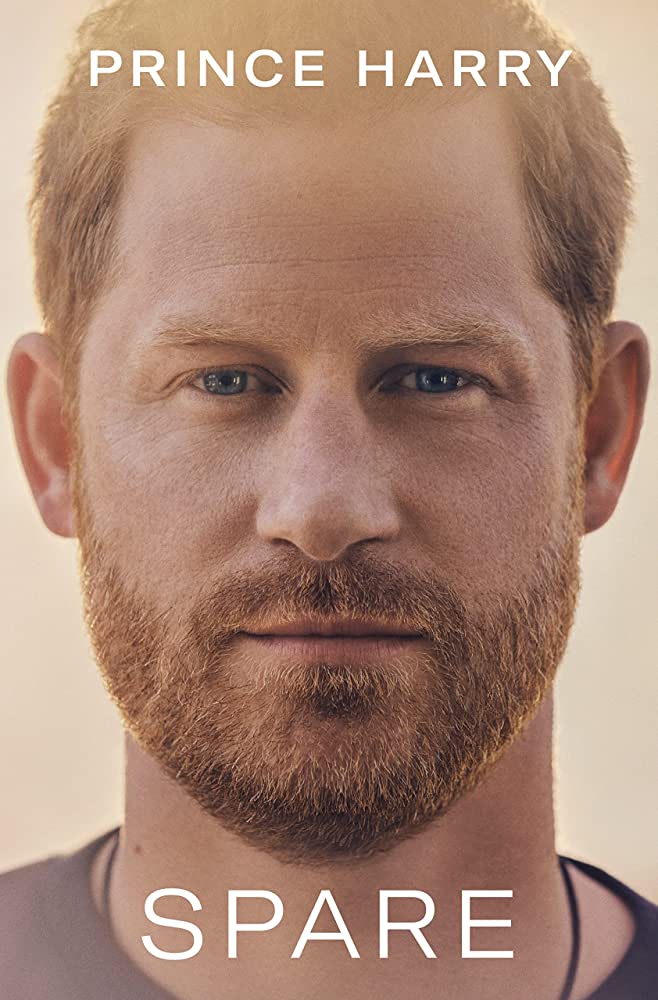
You may have heard of this little memoir from Prince Harry? Given its smash success, it was hard not to in the days and weeks leading up to and following its release back in January. Spare is a New York Times bestseller and was already in its second printing in its first week of release. It has year long waitlists at libraries across the country (at one point when I calculated the waitlist for my own library system using the formula I Macgyvered, it was, and remains, over a year long). Harold, as his brother and father inexplicably call him, leaves little to the imagination as he puts all his business out in these mean streets for everyone to see—before the British tabloids can do it for him. And yet there is a lot he doesn’t say in these pages, having cut the memoir from some 800 pages to 400. Insightful and introspective, it is very clearly in Harry’s own voice and, though full of royal tea, it’s a portrait of a man who has made an intentional decision to heal the grief and trauma that has characterized so much of his life, to break the generational trauma that pervades his paternal family, and, as a result, has outgrown a family that enables dysfunction and toxicity.
The memoir is broken down into three sections. The first examines his late childhood years following the traumatic aftermath of his mother’s death followed seven years later by his best friend’s death also in a car crash; the second details his search for purpose and meaning through a career in the military, and the third section tells about his life post-military service when he meets the love of his life, his wife Meghan, as well as the crushing pressures of institutional racism and misogyny that drove them to withdraw as ‘full-time working royals’ in 2020. Throughout the book Harry shares his experiences as “the spare” in which he is always the scapegoat, always an afterthought, always second best and expendable. His wants, needs, and comfort are always subsumed in favor of the heir’s, a state of being that has been so normalized for him because it’s the only experience he’s ever known. Perhaps more painful for him is the way in which the media and the public insist on stereotyping him as the “naughty one,” pigeonholing him as a stupid, delinquent, lost cause—all of which is a wholesale invention in service of a narrative that the media controls.
The memoir also delineates, whether intentionally or not, the vast differences between Harry and his paternal family. Harry possesses an innate kindness and compassion and an emotional intelligence inherited from his mother that allows him to connect with people where they are, which is in direct opposition to the chilling emotional distance inherent to his father’s family. Harry is his mother’s son, and his mother is a woman that the British royal family chewed up and spit out while the British tabloid press mercilessly hunted her literally to her death, so it comes as no surprise that his treatment by his family and the press that Harry describes in his memoir is so similar to that which his mother suffered.
Recurring themes throughout are his growing fury at the unrelenting press intrusion and unabating harassment that costs him and those he loves their privacy, peace of mind, in some cases their safety and security, and sometimes even their lives, and his dissection of the toxicity that characterizes the relationship that exists between his extended family and a media apparatus that engages in illegal means of information gathering on those it targets. For a man who longs to be a husband and father (another recurring theme) the loss of his romantic relationships due to press harassment leads to loneliness and isolation. It’s also a journey of self-education and finding himself and a purpose for his life outside of the suffocating machinery of the palace. The memoir is both hard to put down and hard to read—about his experiences of grief and trauma from his mother’s death compounded by the emotional distance and dysfunction that characterizes his paternal family as well as being persistently hunted by the British media.
Though those with an interest in royal history/British royal family are the obvious audience for this memoir, this memoir is a must read for anyone who has suffered grief and trauma and, like its author, is on a journey of healing. The royal tea is just window dressing for the more meaty themes explored in Spare.
